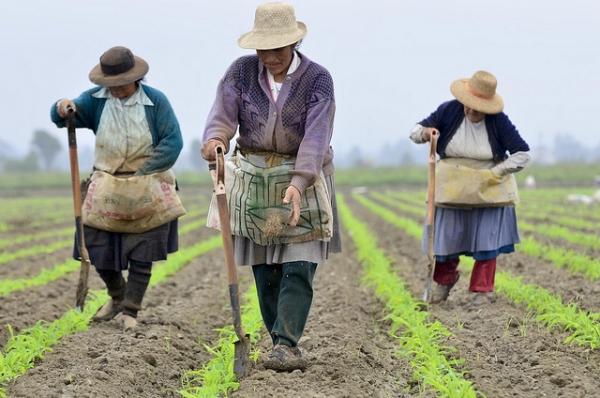Historic Law Passed in Peru Benefits Citizens and Ecosystems

How to balance use of ecosystem services—such as clean water and air—with preservation of the environments that provide such benefits? In Peru, citizens and private sector actors have long been collaborating to establish rewards mechanisms that aim to ensure the continued provision of ecosystems services.
On June 11, 2014, conditions for implementing and establishing such mechanisms improved as the Peruvian congress passed a law on rewards for ecosystem services mechanisms.
“Many people in Peru are interested in setting up rewards mechanisms, and the new law is important because it eliminates any doubt that such mechanisms are illegal and because it provides guidance for their practical implementation,” said Bert De Bièvre, principal researcher at CONDESAN.
The Law on Rewards Mechanisms for Ecosystem Services seeks to foster effective development of local, regional, and national initiatives that will sustainably protect and maintain ecosystem services, thereby providing economic, social, and environmental benefits to society. In essence, rewards mechanisms formalize voluntary agreements in which ecosystem service users, such as city dwellers who depend on clean drinking water, reward ecosystem stewards, such as upland farmers who maintain and preserve the ecosystem. Rewards may include financial remunerations and other types of support such as schools and health centers.
CONDESAN and CIAT have made important contributions to the law by advising the Peruvian Ministry of Environment on technical and terminological challenges related to rewards mechanisms. A film that shows how rewards mechanisms work, produced by CONDESAN and the CGIAR Research Program on Water, Land and Ecosystems, also helped advance the process by raising awareness and understanding among policy-making audiences.
CIAT has previously helped the Ministry of Environment establish a rewards for hydro-ecosystem services scheme in the Cañete River basin, and both CIAT and CONDESAN have extensive experience with the design and implementation of rewards mechanisms in Peru. Both organizations are already taking next steps and are supporting the Ministry of Environment in formulating supporting regulations. The regulations will draw in part on a study of bottlenecks in the implementation of rewards mechanisms, which was recently conducted by CIAT and the Inter-American Institute for Cooperation on Agriculture.
“These regulations will guide and help people seeking to implement rewards mechanisms and will in no way be limiting. People will only need to register the mechanisms to allow for follow-up and tracking, but all agreements will continue to be voluntary,” explained De Bièvre. “This goes to show that rewards mechanisms could also work in other countries, even without a supporting regulatory framework.”
Previous support to rewards for ecosystem services mechanisms was provided through the Andes Basin Development Challenge under the CGIAR Challenge Program on Water and Food. Going forward, the CGIAR Research Program on Water, Land and Ecosystems will continue to support CIAT and CONDESAN in promoting rewards mechanisms in the Andean region.
- Download Law 30215, Law on Rewards for Ecosystem Services (in Spanish): Ley 30215, Mecanismos de Retribución por Servicios Ecosistémicos.
By Marianne Gadeberg

Facebook comments